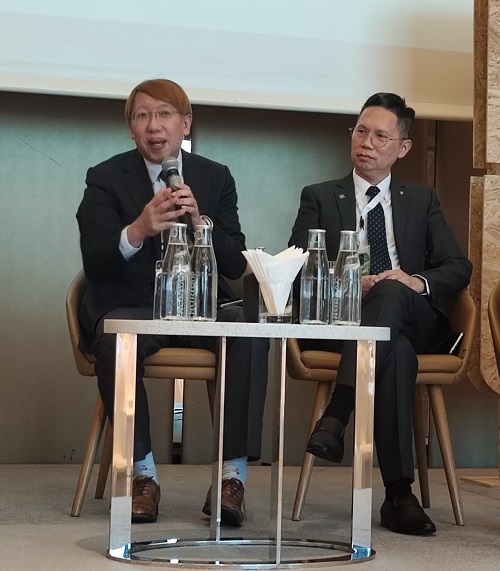SINGAPORE, January 22, 2024 – Singapore is charting a pioneering course towards a net zero world, transforming its established trade and finance experience, and blending it with technology expertise into environmental leadership within the carbon credit market. Since 2019, the nation has been laying a solid foundation with measures like a carbon tax and the establishment of the Singapore Green Finance Centre, alongside a research centre for nature-based climate solutions.
These steps reflect Singapore’s vision as outlined by Victor Tay, CEO, Global Catalyst Advisory, who underscores the nation’s trajectory from a historical trade hub and modern financial center to a global exchange for carbon credits. “Singapore’s aspiration to become a global exchange for carbon credits is a natural progression of our historical significance, evolving from the physical transhipment hub, financial center, to the intangible IP hub and carbon trading center. Singapore has built a reputation for trust, credibility and high quality that catalyses its stature to be a global exchange — a platform that not only trades credits but also upholds their integrity and value on the world stage”, says Tay.
The country is strategically positioned as a prime locale for trading carbon credits, backed by a cluster of over 100 carbon service providers. Institutions like The Nature Conservancy’s Singapore office, which emphasizes Singapore’s role in nature-based carbon removal solutions, Climate Impact X (CIX), and AirCarbon Exchange (ACX), which utilize blockchain technology to trade a variety of carbon credits and Sylvera, a carbon credits ratings firm are all coming together to bolster Singapore’s carbon credit trading ambitions.
Tay highlights that historically, Singapore signed free trade agreements (FTA) with more than 80% of world economy to facilitate efficient and zero tariffs cross-border trade. “Being an international shipping and aviation hub also makes Singapore an attractive carbon credits trading destination for schemes such as the Carbon Offsetting and Reduction Scheme for International Aviation (CORSIA). From 2027, aircraft operators will be legally required to purchase carbon credits to offset emissions from all international flights. Singapore is nestled in Asia which has 60% of world’s Megacities, congregates carbon-intensive manufacturing hubs which require carbon neutrality by 2050. It’s about adapting Singapore’s trade and financing models and Asia’s carbon intensive industries to fit the global carbon market, to effectively contribute to the world’s net-zero objective,” he explains.
The government’s introduction of a significant carbon tax setting its price of $25/tonne in 2024/ 2025 with an increment to $45/tonne reflects its commitment to transitioning from a voluntary carbon market player to one in compliance with stringent market standards. Tay articulates the strategy behind this: “Setting a high domestic carbon tax is a deliberate move to signal our commitment to a more robust carbon market, akin to compliance markets. This tax is not just a fiscal instrument—it’s a reflection of Singapore’s will to establish the value and price of carbon.”

Moreover, Tay emphasizes Singapore’s stringent standards for market integrity. “We are positioning Singapore as a hallmark of quality. Carbon credits that pass through our market will carry an assurance of quality, offering peace of mind to buyers and sellers alike in a market that is increasingly scrutinized for its impact on climate change.”
The Economic Development Board (EDB) is supportive, foreseeing the carbon hub as a significant contributor to Singapore’s economy by 2050. The presence of established institutions like ACX, CIX, and the newly formed Asia Carbon Institute (ACI), which focuses on technology-based and urban-related carbon removal solutions, is integral to this economic strategy. “By spearheading a global exchange, leveraging our trade network, setting strategic tax, pricing policies, and aggregating carbon service providers and the value chain, Singapore is defining its role in the fight against climate change,” Tay concludes with an assertion of Singapore’s proactive stance.
On addressing the lack of volume and liquidity of carbon at voluntary market, Tay advocates leveraging Web3 technologies to tokenize and fractionalize a tonnage of carbon credit to more granular level of kilograms for green conscious consumers to trade. He also encourages the progress of IOT, sensors, blockchain technologies and satellite imagery to arrest doubts on permanence of nature-based solutions like afforestation.